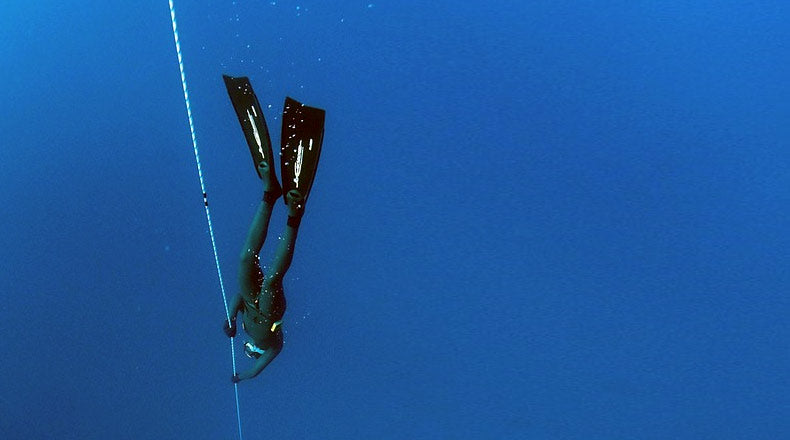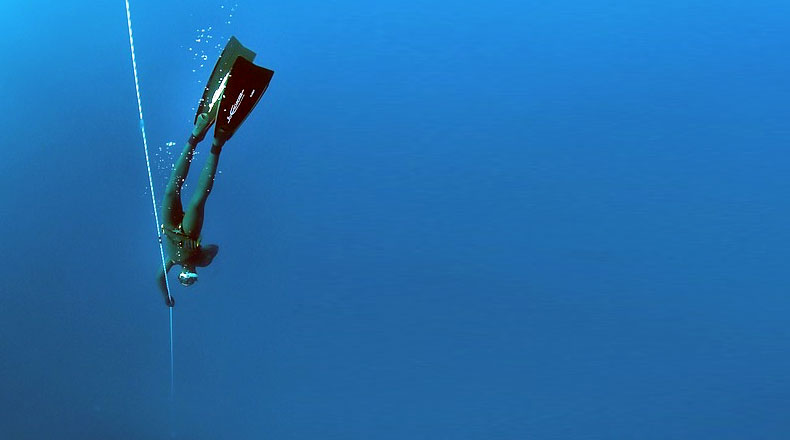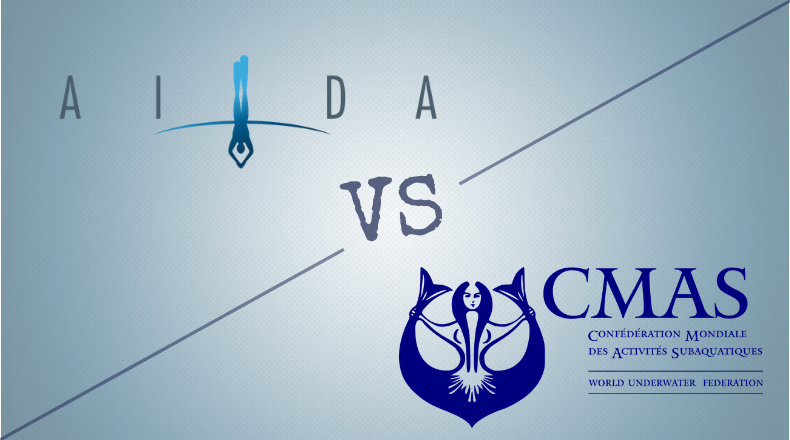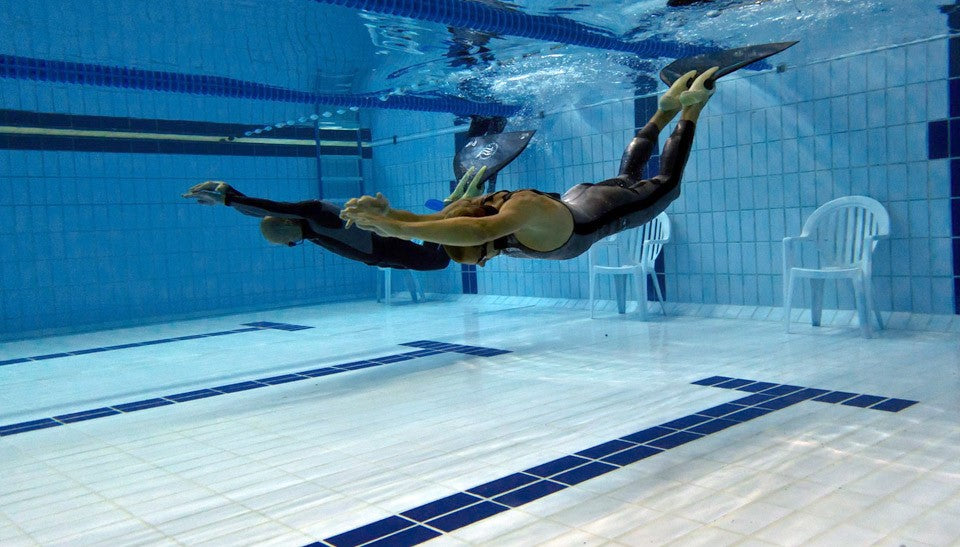Freediving Record Governing Associations: AIDA vs. CMAS

In one of our previous articles we have discussed all of the different competitive disciplines in freediving. Today we have decided to look at the organizations that make up the rules and regulate the competitions.
Currently, the world of apnea is governed by two world associations: CMAS and AIDA - both ratify records, both declare their athletes world champions.
CMAS (“Confédération Mondiale des Activités Subaquatiques” in French or the “World Underwater Federation” in English) is a huge international conglomeration of 130 national federations across 5 continents. It arose back in 1958 when delegates from 10 European countries and the USA met in Brussels to discuss the possibility of creating an organization that would deal exclusively with underwater sports. CMAS was officially founded a year later in Monaco, under the leadership of legendary subaquatic explorer Jacques-Yves Cousteau.
Prior to this, the main governing body of the developing sports of freediving, spearfishing, skandalopetra and so on, had been the Comité des Sports Sous-Marins, a stuff old branch of the International Confederation of Sports Fishing (CIPS), which was felt to be too narrow to include all the various underwater activities that were emerging.
During the 1960s CMAS was overseeing most of the early freediving achievements, including the first dive below 100m, made by Jacques Mayol.
In the late 1970s, however, concerns about the safety of competitive freediving had begun to grow. Medical professionals raised doubts about the ability of the human body to withstand the demands of diving below 100m. After a couple of serious accidents involving high-profile divers, CMAS jettisoned their support of freediving altogether to concentrate on the other (very numerous) branches of its operation.
The void CMAS left behind was eventually filled by AIDA (“Association Internationale pour le Développement de l'Apnée” in French or the “International Association for Development of Apnea” in English). In 1990 Roland Specker, a freediver from the North East of France, and Claude Chapuis, a world-class freediver from Nice, came together to organize a series of freediving clinics. Recognizing the need to establish proper regulations and homogenous global rules for freediving competitions, the two men also set out to create an association that would unite freedivers and recognize records. Subsequently, on November 2nd, 1992, Specker, Chapuis, and a few others created the "Association Internationale pour le Développement de l'Apnée" (AIDA), with Specker being its first President.
Several records were quickly recognized by AIDA, this was to become the reference for freediving. Unlike CMAS, which governed and regulated a plethora of underwater practices, AIDA was completely dedicated to the sport of apnea.
Around the same time, there emerged two more organizations that regulated freediving records and activities - IAFD (International Association of Freedivers) and FREE (Freediving Regulations and Education Entity). Both, however, were short-lived.
By 1995 CMAS resumed their ratification of freediving records in response to the AIDA initiative, defining their own separate set of regulations.
As a result, today, there are two completely separate and unassociated bodies regulating the sport of freediving. One of the biggest problems with this is that world-record holders are not well-defined. CMAS does not recognize the world records set by AIDA, and AIDA does the same to CMAS. All of this does not only create confusion but also questions the legitimacy of the sport.
Now, if you are new to the sport of freediving, you may be asking yourself a question, which association to choose. As a matter of fact, for amateur freedivers, the difference is very little - if any.
Both agencies offer a freediving certification to educate new freedivers about apnea; both are ripe with experienced freedivers that can help you learn how to practice the sport safely and effectively.
If you are serious about competing in apnea, however, the decision may be an important one, since each association has its pros and cons.
CMAS is a large, well-established organization with a rich history, and the only one recognized by the International Olympic Organization in the category of underwater sports. AIDA, on the other hand, despite being a much younger and smaller organization, has more years under its belt governing apnea than CMAS does.
Freedivers from both AIDA and CMAS camps will give you many more reasons to join their organization, so further research is definitely worth your time.
Whichever agency you choose, dive safe and have fun!




